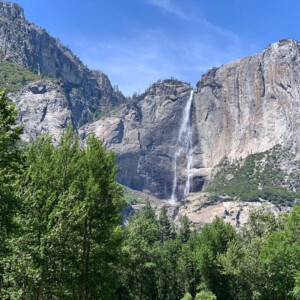
9 Let Your priests be clothed with righteousness, And let Your saints shout for joy.
16 I will also clothe her priests with salvation, And her saints shall shout aloud for joy.
Psalm 132 is the thirteenth of the fifteen “Ascent Songs” or “Pilgrim Psalms”. Solomon was the most like writer of this psalm as he fulfilled the desire of his father David to bring the ark to Jerusalem and build the temple as a “resting place” for it. After his dedication prayer the glory of the LORD came down and filled the temple and now the visible presence of God was in the midst of the people and nation (2 Chronicles 6-7). Solomon begins the psalm in verses 1-5 asking the LORD to remember David’s desire and promise to give God His rightful place among His people.
In verses 6-8, he continues by describing how they found the ark and the people were encouraged to come to Jerusalem to worship. We get the impression that the ark was almost forgotten during the years it was in the house of Abinadab in Kirjath Jearim ("city of woods"). The city was only eight miles northwest of Jerusalem, so distance was no problem. Possibly some of the people in David's hometown of Bethlehem (Ephrathah—"fruitful land") were involved in bringing the ark to Jerusalem. And now, the people felt drawn to go on pilgrimage to the city. When Solomon put the ark into the Holy of Holies, the glory of God moved in, just as when Moses dedicated the tabernacle (1 Kings 8:1-11; Ex. 40). The Lord could now "rest" in His house after many years of wandering from place to place (2 Sam. 7:6; 1 Chron. 28:2).
In verses 10-12, Solomon reminded God of the covenant He made with his father David. God's covenant with David (2 Sam. 7) assured Israel that one of David's descendants would sit on the throne, and now Solomon was king, "God's anointed." So it was for David's sake, not Solomon's, that God blessed the king and the people. Ultimately, this promise was fulfilled in Jesus Christ, the Son of David, whose throne and kingdom are forever (2 Sam. 7:11-17; Acts 13:26-39; Luke 1:30-33). If David's successors wanted the blessing of God, they needed to obey the law of God. Believers today are united with the Lord in a new covenant that Jesus made in His own blood (Matt. 26:26-30; Heb. 12:24), and He will never break that covenant. The Father is faithful to His Son, and the Son is faithful to the covenant He made in His own blood.
In verses 13, Solomon reminds the people that God not only chose Israel to be His people and David and his descendants to be His kings, but He chose Zion to be the site of His temple and His throne (the ark). Other nations had temples, but none of those temples had the glory of the true and living God dwelling in them. Now in verses 14-18, God speaks and reaffirmed His covenant with Israel (Lev. 26; Deut. 27-30). God promised to dwell with Israel, provide their food, bless their worship, and defeat their enemies.
A “horn” (v. 17), is a symbol of power and strength, and the “growth” of the horn of David is a picture of the coming of the promised Messiah. So, the psalm ends by pointing to Jesus Christ. The psalm concerns itself with David and God's covenant with him, but it points to David's greater Son, Jesus Christ, and His covenant with His church. The psalmist was concerned about the ark of the covenant, but the ark points to Jesus Christ who today is enthroned in the Holy of Holies in heaven. We see, not the earthly Zion, but the heavenly Zion (Heb. 12:22-24), and we rejoice that we are "a kingdom of priests" because of the grace of God (Rev. 1:5-6).
Today, let us give God His rightful place, worship Him joyfully, rest on His faithful covenant, and trust Him for the promised blessings for those who willingly obey His will. And then His “saints shall shout for joy”! (vv. 9, 16)
God bless!
More Episodes
 2024-06-08
2024-06-08
 2024-06-07
2024-06-07
 2024-06-06
2024-06-06
 2024-06-05
2024-06-05
 2024-06-04
2024-06-04
 2024-06-03
2024-06-03
 2024-06-02
2024-06-02
 2024-06-01
2024-06-01
 2024-05-30
2024-05-30
 2024-05-29
2024-05-29
 2024-05-28
2024-05-28
 2024-05-26
2024-05-26
 2024-05-24
2024-05-24
 2024-05-22
2024-05-22
 2024-05-21
2024-05-21
Create your
podcast in
minutes
- Full-featured podcast site
- Unlimited storage and bandwidth
- Comprehensive podcast stats
- Distribute to Apple Podcasts, Spotify, and more
- Make money with your podcast
It is Free
- Privacy Policy
- Cookie Policy
- Terms of Use
- Consent Preferences
- Copyright © 2015-2024 Podbean.com






